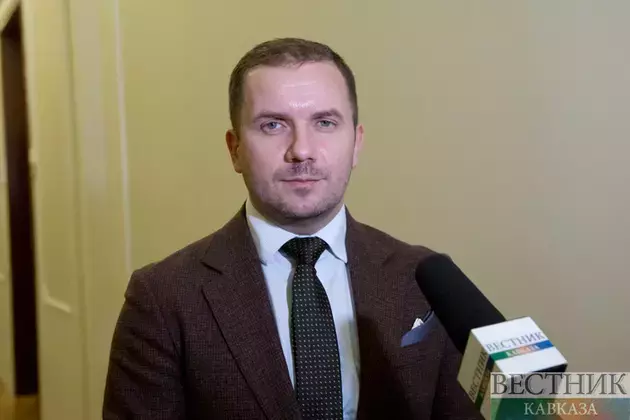This spring, the Armenian-Azerbaijani settlement received positive dynamics thanks to the launch of work on border delimitation and the voluntary withdrawal of Armenian troops from the Gazakh region of Azerbaijan. However, there is still a bigger agenda ahead. Vestnik Kavkaza spoke with Stanislav Pritchin, Chairman of the Central Asia sector of the IMEMO RAS, about its contents.
- Stanislav Aleksandrovich, in your opinion, at what stage is the Armenian-Azerbaijani settlement now, given the beginning of border delimitation?
- There is still a long way ahead. It is important to understand that delimitation is carried out as a separate process from the preparation of a peace treaty. And, in terms of the coordination of the state border itself, the installation of pillars and the deployment of border guards in the area between the Gazakh region of Azerbaijan and the Tavush region of Armenia are only the first steps taken in the most obvious place for starting delimitation work. It is necessary to establish about 1000 km of border, a significant part of which passes through mountain ranges and areas where people live on both sides, which, of course, will not be so easy to do.
The peace treaty is a completely separate track. It represents political recognition and acceptance by the parties of the binding principles of continued peaceful coexistence of the two countries. At the same time, the peace treaty itself will only be a definite beginning for the further normalization of relations, because after its adoption, a large number of complex issues on the bilateral agenda will remain in the contacts between Azerbaijan and Armenia, which have not been resolved for 30 years.
- Should we expect changes to the Constitution of Armenia, which still contains territorial claims against Azerbaijan?
- This is one of Baku's demands because the current Constitution contains elements that call into question the territorial integrity of the Republic of Azerbaijan. From the point of view of the Azerbaijani authorities, this is an important element of the final settlement of relations. And in fact, how can a state sign an agreement recognizing the territorial integrity of its neighbor if its founding document contains claims to someone else's land that cast doubt on this very signing? From a legal point of view, such a discrepancy cannot but raise questions, and it must be removed.
It is clear that any amendment to the Constitution is a fundamental event for any state, and the Armenian authorities will need to do a lot of work to organize it. There will be many questions here from both society and the opposition, and it will not be so easy to make amendments. But at least according to the statements of Prime Minister Nikol Pashinyan, we see that the governmentis open for changes in the Constitution of Armenia.
- We see that the Armenian opposition has a plan to impeach Pashinyan, and this will call into question the ongoing settlement of relations with Azerbaijan, since the nationalist "war party" is in the opposition. In your opinion, how strong is Nikol Pashinyan's position in Armenia now?
- It is worth comparing the protests of previous years and the current ones. Previously, Nikol Pashinyan actively responded to opposition statements, gathered his supporters and organized retaliatory, pro-government rallies. And now we see that he is not doing this, but he is carrying out the usual work of the Prime Minister, including calmly traveling on foreign visits to different countries. At the level of political psychology, this means that Pashinyan is not showing any concern about the increased opposition activity.
The stability of Nikol Pashinyan's power is greatly facilitated by the fact that the opposition does not have a clear road map for the future of Armenia. There is no significant agenda. They only seek Pashinyan's resignation. Meanwhile, the Prime Minister himself has such a road map, and therefore he feels quite confident and understands that the opposition has little chances to influence the situation in the country somehow.






